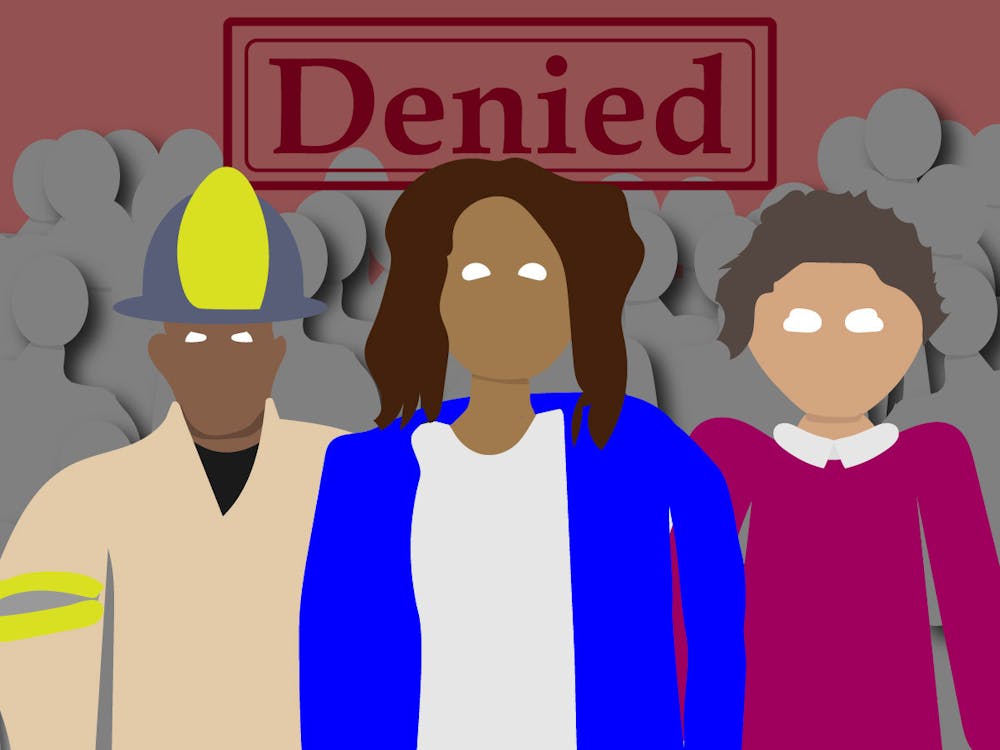Tyler Foerst was working at the Gainesville Regional Transit System when an audit was issued accusing him and a coworker of not following procedures.
At the time, the audit’s language couldn’t have applied to Foerst because he had only worked at RTS for six months, he said. With the help of the Amalgamated Transit Union 1579, Foerst, a 33-year-old Gainesville resident, was able to keep his job.
“I don't think they would have listened to me just as a worker, unless I had that union backstop with me,” Foerst said.
Now, with a pair of bills making their way through the Florida legislature, many state public employees may not receive the same support Foerst did.
Over the years, Florida Republicans have introduced bills targeting the ways public employee unions operate.
Most of the previous bills haven’t been able to cross the threshold into becoming laws. But some union leaders fear that might change this legislative session.
Florida Senate Bill 256 prevents union members from using paycheck deduction to pay dues and requires 60% of the union to pay dues or the union will be decertified and the collective bargaining agreement voided. The bill is on its third reading in the Senate after it was filed at the end of February.
Its companion bill, House Bill 1445, will also impact the way public employee unions collect dues and their certification processes. The bill is currently in the State Affairs Committee after it was filed at the beginning of March.
Both bills would impact teachers, librarians, sanitation workers, linemen and more. They both notably exempt law enforcement, firefighters and correctional officers.
Other states such as Tennessee and Idaho have passed legislation that restricts public unions’ collective bargaining rights.
About 414,000 public and private sector employees in Florida belong to unions as of 2022, according to the U.S. Bureau of Labor Statistics.
These bills could potentially affect collective bargaining contracts — negotiations that establish terms of employment, created between unions and employers.
Across the state, Florida union leaders are speaking out against the bills. Union leaders from Alachua County traveled to Tallahassee to urge lawmakers to vote against the bills.
Foerst, who is now a North Central Florida Central Labor Council field representative, works for several unions on state and local levels.
He was expecting the bills to be introduced this legislative session but was shocked at the rate the bills have moved through the legislature, he said.
“At most of the committee hearings, the chairs are limiting debate down to a minute or two because most of the public is opposed,” Foerst said.
At the first committee stop for the Senate bill, there were 36 public speakers opposed to the bill, with only three speakers in support, Foerst said.
Foerst encourages public sector employees to join their respective unions and to rally against the bills.
“We're not backing up and going away,” Foerst said.
Crystal Tessmann, the Alachua County Education Association service unit director, originally joined her union as an elementary school teacher to gain a sense of security and peace of mind within her job, she said.
Tessmann’s union has over 60% membership paying dues, but she worries this number could drop with payment changes outlined in the proposed legislation, she said. There are 2,300 active members.
“That's a lot of people to move into electronic funds transfer, and there are some people who aren't comfortable with electronic funds transfers,” Tessmann said.
As a Florida educator, Tessmann is familiar with advocating for the rights of her coworkers.
“The education unions are largely dominated by women, and a lot of the police, firefighters, those [jobs] are not dominated by women,” said Tessmann, 38. “It does feel like an attack on women and our jobs.”
Jenn Powell, an organizer for the CWA 3170, which represents employees of the Alachua County Library District, Gainesville Regional Utilities and more, is worried about the future of her union. It currently falls short of the requirement for membership outlined in the bills.
“A lot of people's livelihoods are on the line,” Powell said. “We are only at 34% right now, and with 34% you don't have a lot of bargaining power.”
Powell, a 45-year-old Gainesville resident, only knows of one CWA organization in Florida that has passed the 60% threshold, while the rest fail to meet it, she said.
Powell believes Florida Republican lawmakers have an ulterior motive: breaking up the working class. If these bills go into effect, Powell will have to race against the clock to rally citizens to join unions to meet the membership requirements.
“I really feel this bill is set to destroy unions,” Powell said. “Right now, they have the fire and police carved out, but I doubt that will be the case next time.”
Despite first responders being left out of the bills, some first responders’ unions are also speaking out against the legislation.
Nick Gonzalez, the Gainesville Professional Firefighters union president, and his union recognize the effects these bills could have.
Gonzalez, a 39-year-old Gainesville firefighter, believes his unions can not only improve employees’ lives but also the state of the city they work for, he said.
“If we weren't exempt from this bill, if this were to go into law, we would be blocked from offering a multitude of discounted services, many supplemental insurance policies and collection of dues,” Gonzalez said. “These benefits are convenient to both members and employers.”
In predominantly Republican counties, other union leaders are also worried for the future of their unions.
Kim Hudson, Levy County Education Association president, has been a part of the union for the past 21 years.
Hudson, a 52-year-old Joyce Bullock Elementary School teacher, spent her spring break advocating for unions in the state’s capitol. She’s seen legislation attack teachers, but it’s different this time because the bills attack more than just teachers, she said.
When Hudson became president in May, she was nervous about potential legislation and made it a priority to bring up her union’s 50% membership rate to over 60%.
But Hudson’s union doesn’t represent the majority of Florida unions, and many who don’t meet the 60% majority could cease to exist if the bills become laws.
“When these legislators are elected, the majority [is] 50% plus one. There's no 60%,” Hudson said. “Why are you holding on to a different standard than you hear out to?”
Contact Claire at cgrunewald@alligator.org. Follow her on Twitter @grunewaldclaire.

Claire Grunewald is a fourth-year journalism major and the Spring 2024 Editor In Chief of The Alligator. In her free time, she likes to go to concerts and attempt to meet her Goodreads reading goal.






